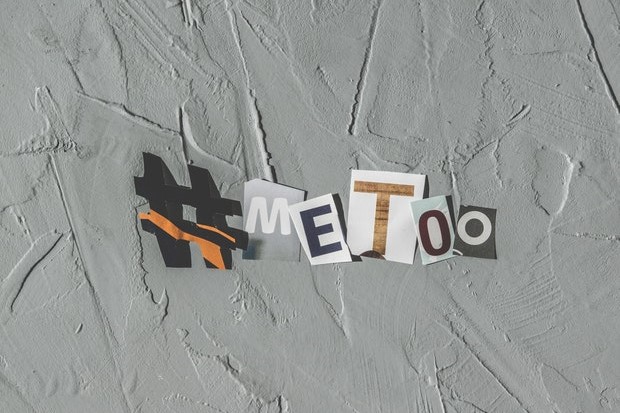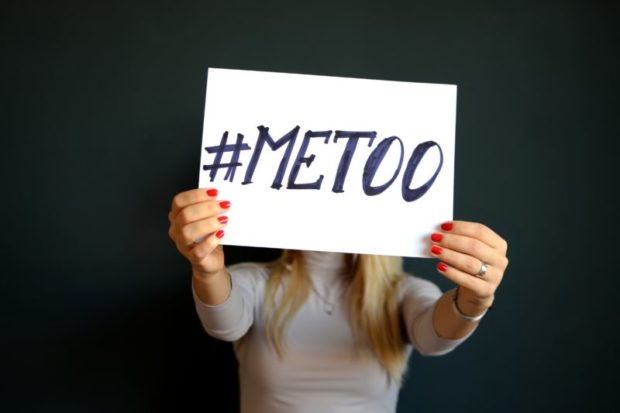Do These Defamation Cases Show the MeToo Movement Has Gone too Far?

The MeToo movement first got its legs in 2017, after the Harvey Weinstein case encouraged millions of women to come forward with rape and sexual assault allegations. These brave women not only encouraged further Weinstein victims to come forward, but a wave of victims – men and women – across the world to name and shame their attackers.
However, for men in powerful positions who had spent years getting away with this exploitative behaviour, fear and outrage took hold. One surprising development was the increase in lawsuits citing defamation of character. These suits blamed women who came forward via social media for making these allegations up.
The question is, do these defamation cases have a point? Has the MeToo movement gone too far, and are we using our platforms to name and shame men who don’t deserve it? Or, is the MeToo movement doing exactly what is intended, so that the perpetrators can take responsibility for their actions? Find out, here…
3 Cases of Defamation Lawsuits Against MeToo Survivors
First and foremost, we need to take a closer look at how MeToo and defamation has become so closely intertwined. We’ll do this by exploring some cases where defamation was cited after a MeToo allegation, and what the result of this lawsuit was…
Sandra Muller Wins Defamation Case Over Eric Brion
French journalist, Sandra Muller, was basically the pioneer of the MeToo movement in France. She coined the viral hashtag #balancetonporc (“expose your pig”), aimed at TV executive Eric Brion.
In October 2017, Muller accused Brion of “humiliating her at a function in the city of Cannes in 2012, telling her: “You have big breasts. You are my type of woman. I will make you orgasm all night.””
Retaliating against this in September 2019, Brion issued a court case which ordered Muller to pay 15,000 euros in damages. The trial went forward based on the fact that she had no proof of her sexual harassment claims.
Brion admitted to making the remarks, but claimed he apologised in a text message later on. However, his lawyers argued that the remarks did not constitute harassment. Still, the court overturned the appeal.
Priya Ramani Cleared of Defamation Case Issued by Indian Ex-Minister
In 2017, journalist Priya Ramani wrote for Vogue about her experiences of sexual harassment. After initially not naming the perpetrator, Ramani later exposed Indian ex-minister, Mobashar Jawed Akbar, for “sexually assaulting her in a hotel room during a job interview”.
After making these accusations, Ramani faced up to two years in jail for criminal defamation. However, after naming and shaming him, 20 other women came forward with similar allegations. The victims claimed he had raped and assaulted them, in various ways; a pattern of systematic abuse of power.
Akbar founded and edited various Indian newspapers, as well as serving in the Congress party government between 1989 and 1991. He then joined the Bharatiya Janata party (BJP) government in 2014. However, after these allegations, he resigned, and filed a criminal defamation suit in 2018.
Ramani’s case was pursued for two whole years, and was finally ruled against in February 2021. That said, thousands of women came forward during the heigh of MeToo in India, provoking similar defamation cases across the board.
Geoffrey Rush Awarded AU$2.9 Million After Defamation Case
According to a Daily Telegraph article, Oscar-winner Geoffrey Rush was said to have followed his “King Lear” co-star Eryn Jean Norvill into the bathroom, touched her breasts and back, and sent her inappropriate text messages. Norvill had made these accusations in a private workplace complaint, and later agreed to testify in the paper.
However, in retaliation to these claims, Rush denied everything and accused the newspaper of defamation. In May 2019, Rush won the case and was awarded $2.9 million Australian dollars against the newspaper and the journalist.
Has the MeToo Movement Gone Too Far?
At first glance, seeing hundreds of Google results citing defamation cases due to MeToo accusations is shocking. That said, when we consider that only between two and 10 percent of rape allegations are false, these defamation cases seem to be very much a scaremongering tactic. It certainly highlights the inability for the perpetrators to own up to their mistakes.
What recently came to light after the Sarah Everard murder back in 2020 was that 97% of UK women have experienced some sort of sexual assault or harassment. Whether this was simply vocal harassment, or physical rape, most women have been victims.
The Real Numbers
With this stat, we can safely assume that, out of the many rape cases that are brought to court, there are many more out there that don’t see the light of day. Because of this, it’s probably likely that the two to 10 percent of false rape allegations are not representative of the true figures when we consider how many rapes go unreported.
With regards to the Muller case, Celine Piques, spokesperson for the Osez Le Féminisme (Dare Feminism) feminist association in France, told CNN the trial was “absurd”. She stated that it highlights a culture wherein victims are made to “believe there is a grey zone between harassment and seduction.” After all, countless times during these cases are the female victims asked what they were wearing.
Pique notes that women who speak out against sexual violence have a lot to lose. Not only can they lose their jobs, or expect other forms of retaliation, now the threat of defamation looms.
Ultimately, Pique attributes the backlash against the #MeToo movement to men who are “not ready to give up their privileges” in society. These defamation cases are simply an additional barrier stopping women from naming their accusers. Especially for those in less well-off economic backgrounds who could never afford to be sued, it adds a whole new layer.
Although there may be a small number of people who have been falsely accused, this is a minority. It’s clear to see that the MeToo movement is well and truly sticking around, and needs to in order to empower victims – both men and women – to come forward.
What Do You Think?
In this article, we’ve highlighted three defamation cases that have surfaced after MeToo allegations. Out of these three, only one was successful. But it brings to light Pique’s above claim that many men are unwilling to give up their privileges in society.
Although it might seem as though the MeToo movement has gone too far by accusing men who deny the allegations, when we dig deeper into each case we can see the truth. This truth is that there’s a lot that has been brushed under the carpet in the past. And women are unwilling to let this continue.
Now, those who systematically objectify women and use their positions of power to get their way won’t be tolerated. It’s clear the movement must stick around in order to alter this picture for victims everywhere. But what do you think? Be sure to leave your thoughts in the comments down below.



